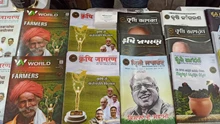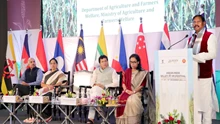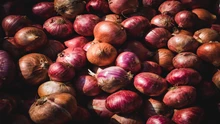
Seeds Without Borders is a regional seed policy agreement that aims to accelerate the spread of modern rice varieties across Asia, particularly in South and Southeast Asia. The International Rice Research Institute (IRRI) facilitated the signing of the agreement by India, Bangladesh, and Nepal in 2014. Bhutan, Cambodia, and Sri Lanka are currently party to the agreement.
The Philippines, Vietnam, and Fiji are joining the agreement this year. Fiji is the first Pacific Island nation to join Seeds Without Borders, marking the expansion of the agreement from South and Southeast Asia to the Pacific Islands.
On Tuesday, senior agricultural officials from Bangladesh, Bhutan, Cambodia, Fiji, India, Nepal, Philippines, Sri Lanka, and Vietnam signed an agreement called the Thimpu Protocol of Discussion that would help improve the process of implementation of the previous agreements under Seeds Without Borders, such as those that were signed in Dhaka, Bangladesh (2013) and Kathmandu, Nepal (2014), and Siem Reap, Cambodia (2017).
Among the discussion points discussed in Thimphu is how each country could work together with IRRI and serve as the agreement's convenor. The latest agreement also intends to add roots, tuber crops, and fruit crops to the current ones covered by the agreement, such as rice and other cereals, pulses, oil seeds, vegetables, sugarcane, and fiber crops.
“Bhutan is honored to be part of Seeds Without Borders as this agreement is instrumental in implementing the country’s programs to achieve food and nutritional security. It would also help Bhutan’s food system become self-reliant, productive, diverse, resilient, and sustainable,” said H. E. Lyonpo Yeshey Penjor, Minister for Royal Government of Bhutan’s Ministry of Agriculture and Forests. Bhutan is one of the organizers of the workshop together with IRRI.
“IRRI has served as a broker for this regional seed-sharing agreement for almost a decade. We’ve seen how efficient and effective seed-sharing policies across countries play an important part in transforming their agri-food systems. Gaining access to a diverse selection of genetic resources and improved and climate-smart crop varieties enables the nations to better address the challenges in their agri-food systems,” said IRRI Director General Jean Balié.
Meanwhile, the implementation of the Thimphu Protocols of Discussion will commence on 23 November 2022. Whenever required, a member country may obtain the endorsement of the respective government. In case of unforeseen circumstances, member countries reserve the right to withdraw with mutual consent.
The workshop was attended by donors such as the Australian Centre for International Agricultural Research, the Bill and Melinda Gates Foundation, the World Bank, the International Fund for Agricultural Development, the Syngenta Foundation, the Asian Development Bank (ADB), ADBi, and the SAARC Development Fund.









